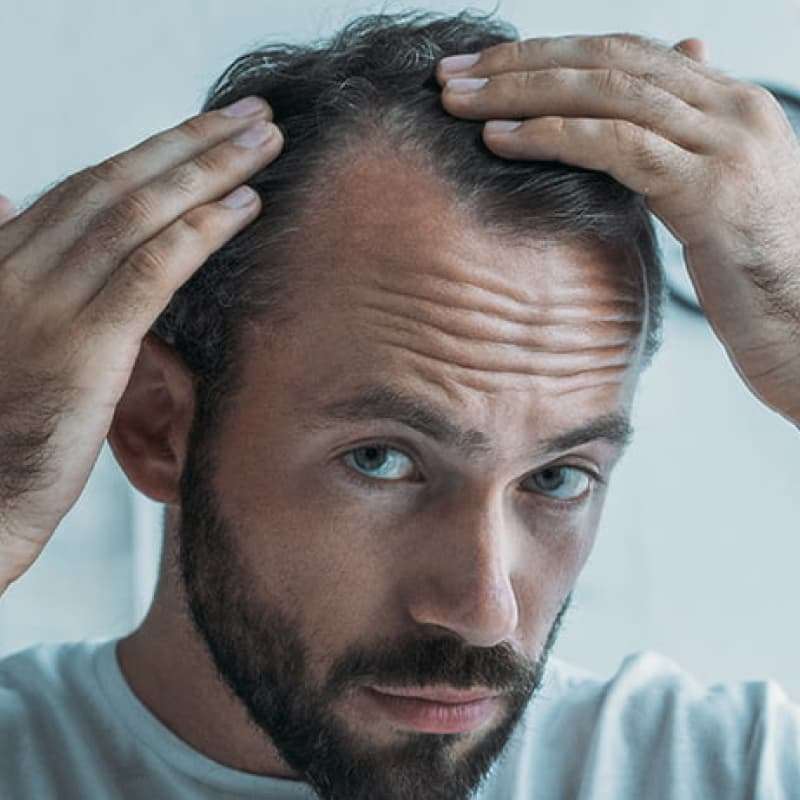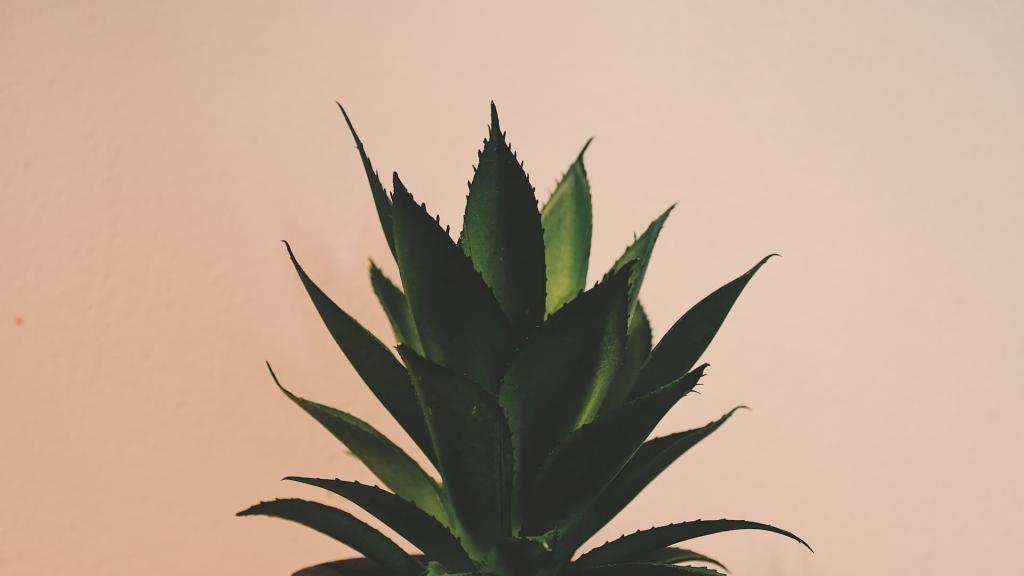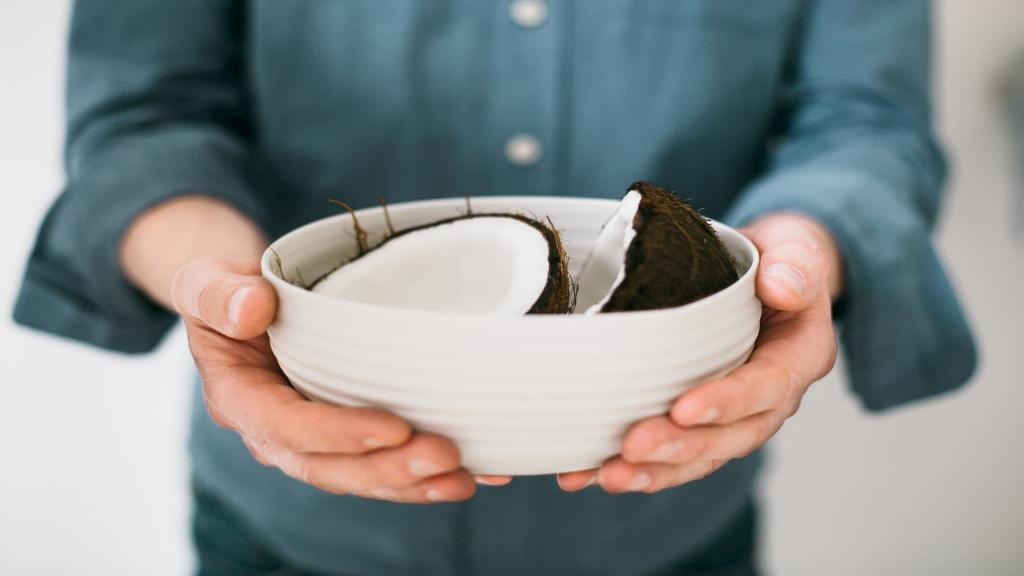
Worried about going bald?
Hair! We cut it, style it, dye it. We buy care products to keep it looking healthy. It helps convey our sense of style. All in all, it’s one of our defining physical features. It’s no wonder that people are anxious about hair loss. So, what can be done to treat the problem? Let’s examine some home remedies for hair loss and whether they are effective treatments.
What Causes Hair Loss?
Hair loss can happen for a variety of reasons. You will naturally shed hair every day. Hair loss becomes a concern when it doesn’t grow back. Unfortunately, one of the causes is inevitable: ageing! Male-pattern baldness and female-pattern baldness, or androgenetic alopecia, are common hair loss conditions associated with the natural ageing process. It typically presents as a receding hairline followed by thinning hair. Male-pattern baldness affects around half of all men over 50, but the hair loss can begin much younger. For men the condition is associated with a hormone called androgen, and it’s likely hereditary. Female-pattern baldness is also related to hormone production, but whether it is hereditary or not is less clear. As a general rule, female-pattern baldness starts later in life than male-pattern baldness, typically post menopause.
Alopecia areata is another cause of hair loss. In this condition, the hair will fall out in patches the size of a large coin. Usually this is constrained to the scalp but in some cases will occur elsewhere on the body. Here’s some good news: hair can actually grow back over these patches over a few months. The condition is thought to be caused by the immune system misidentifying hair follicles as a threat.
Other causes of hair loss include physical and emotional stress, a side effect of chemotherapy treatment or a side effect of an illness.
Are There Home Remedies for Hair Loss?
It can be difficult and expensive to get medical treatment for hair loss. Due to this, some people turn to home remedies to prevent hair loss. These remedies come from a variety of sources but typically involve applying a substance to the scalp for a set duration and then washing it off. Some people use these methods alongside other treatments for hair loss and others use home remedies as their only treatment for hair loss. Let’s examine some of the popular home remedies and whether or not they actually work.
Is Aloe Vera a Home Remedy for Hair Loss?
Aloe Vera (Aloe barbadensis miller) is a plant which contains a variety of vitamins and anti-inflammatory substances such as Choline Salicylate. This means Aloe Vera can treat burns. It has long been used historically and in cosmetic industries as a gel that is applied to the skin for a purported health benefit. The anti-inflammatory nature of the plant may support its use as a treatment for skin conditions of the scalp such as Seborrheic Dermatitis. The application method claimed to help your hair involves rubbing the Aloe Vera gel into the scalp, letting it sit and finally washing it out using water and mild shampoo. While Aloe Vera may be healthy for the scalp, there is currently no evidence to suggest it promotes the growth of hair.

Are Eggs a Home Remedy for Hair Loss?
Eggs, the recent trend in home hair treatment! The idea of cracking eggs over your head may not be appealing, but what about the claims that they actively promote hair growth? Well, eggs are definitely a source of protein and essential amino acids. Since hair is composed of the protein keratin, it’s no surprise that a diet rich in protein would promote healthy hair. Protein deficiency has been linked to hair loss. But does that mean that smothering your hair in egg white or yolk could prevent baldness? Some people claim that applying an ‘egg white hair mask’ is a healthy option for your head. Often the egg white is combined with oils like olive oil and coconut oil. The mixture is applied for up to 30 minutes and washed out with cold water. In truth, there is no scientific evidence to support that rubbing eggs into your hair prevents hair shedding or thinning. It’s probably better for your hair that you eat the eggs rather than rubbing them into your scalp!
Is Coconut Milk a Home Remedy for Hair Loss?
Coconut milk is derived from the white flesh of a coconut mixed with water. It’s a popular ingredient in sauces, curries and soups. Coconuts are rich in fibre, vitamins and minerals. But does any of this suggest it can help prevent hair loss? It’s commonly praised in its ability to moisturize, and some claim your hair follicles will take in the coconut nutrients. In terms of science, there isn’t good reason to believe that coconut milk stops hair loss. Its benefits to hair are generally cosmetic and not proven to treat the hair loss conditions outlined in this article.

Is Amla Oil a Home Remedy for Hair Loss?
The Amla, or Indian Gooseberry (Phyllanthus emblica) is a plant and fruit which has been used as a folk medicine throughout history. One method of extracting its health benefits involves soaking the dried fruit in oil, before filtering and purifying to create Amla Oil. The leaves of the plant can also be powdered and taken as a medicine. It’s been claimed to treat hair loss. Amla fruits contain 5α-Reductase inhibitors. 5α-Reductase inhibitors are used in effective hair loss medication such as Finasteride. Some studies claim Amla extracts effectively stimulate hair growth. However, these studies regarding Amla fruit and its inhibition of 5α-reductase used mice as subjects. There have yet to be conclusive studies using human hair. As such, it isn’t known if Amla Oil or other Amla products can combat hair loss in the same way as Finasteride.
Is Pumpkin Seed Oil a Home Remedy for Hair Loss?
Pumpkin seed oil is unsurprisingly derived from pumpkin seeds! The oil can be taken in various ways. One method is to take it orally as straight oil or as a capsule supplement. The oil could also be rubbed into the scalp. In the case of scalp application, the pumpkin seed oil should be gently warmed, left for around twenty minutes and then washed out with water and hair products. Always test the heat before applying it. Research has been done on the effect of Pumpkin Seed Oil on hair growth in men. Similar to the studies regarding Amla Oil, Pumpkin Seed Oil has been shown to inhibit 5α-Reductase. This study found that men taking Pumpkin Seed Oil had higher mean hair count increases then men in a placebo group. The study involved 100 male participants and took place over a period of 24 weeks. This would be considered a relatively small study over a short time period. Still, these results could be promising. There is some speculation that chemicals called Phytosterols present in Pumpkin Seed Oil could block hormones that cause hair loss. In conclusion, we should wait for more studies regarding Pumpkin Seed Oil’s effect on hair loss before advocating it as a treatment.
Should I Use Home Remedies to Treat Hair Loss?
We have discussed a range of popular home remedy treatments for hair loss. Most home remedies for hair are safe, but can’t be shown to reverse common hair loss conditions. If you are applying these substances to your scalp, make sure they are at a safe temperature and that you do not have any allergies to any of the ingredients. If you experience any irritation or adverse effect to your skin or hair, speak to your GP. These home remedies are never guaranteed or even likely to be effective, and you will generally find more effective treatment for hair loss by speaking to a medical professional.
Is There Effective Medication to Treat Hair Loss?
Finasteride, also known as Aindeem, is a commonly prescribed medication for male-pattern baldness. When used properly, it can be very effective. It works by reducing DHT (Dihydrotestosterone). That’s an androgen sex steroid and hormone that contributes to male hair loss. It can be taken in tablet form and must be continually taken to see results. As it inhibits a male hormone, it can have side effects. These may include:
- Low libido
- Difficulty maintaining erection
- Difficulty ejaculating
- Depression
However, these side effects are more commonly experienced on higher doses of Finasteride than would be prescribed for male-pattern baldness. Speak to a GP if you want to use Finasteride medication for your hair loss and if you are concerned with any possible effects of the medication. Finasteride should NOT be taken by women. Find out more information on Finasteride medication here.
Minoxidil is another medication prescribed for hair loss in both men and women. It’s sold as a lotion or foam and should be applied to the scalp daily. You must be careful when applying Minoxidil only to apply it in desired areas and not to apply it to irritated skin. Higher concentration Minoxidil should only be taken by men. Lower concentration Minoxidil is available for women. It is an effective treatment for both male and female pattern baldness.
If you have any questions, sign up for our free Ask A Pharmacist service for answers to any health or prescription related concerns!
Further Reading
- Hair Loss | NHS
- Finasteride | National Institute For Health And Care Excellence
- What You Need To Know About DHT And Hair Loss | healthline








